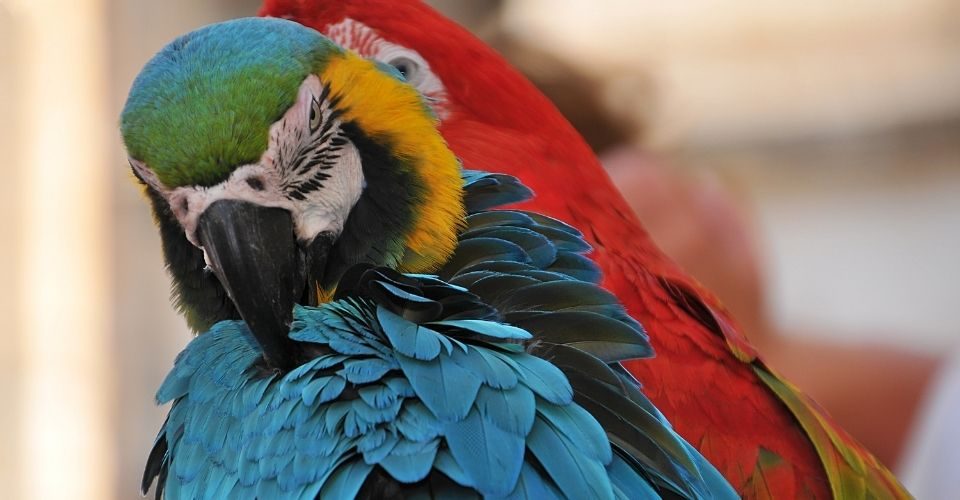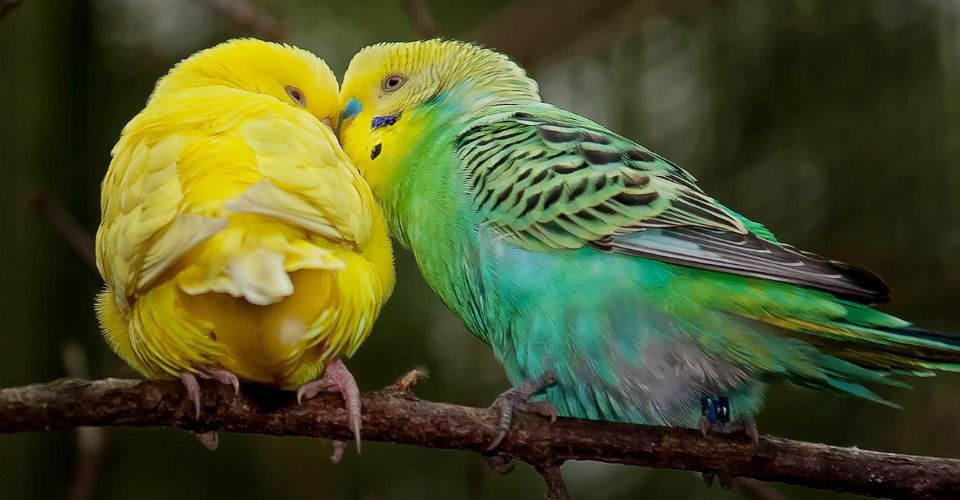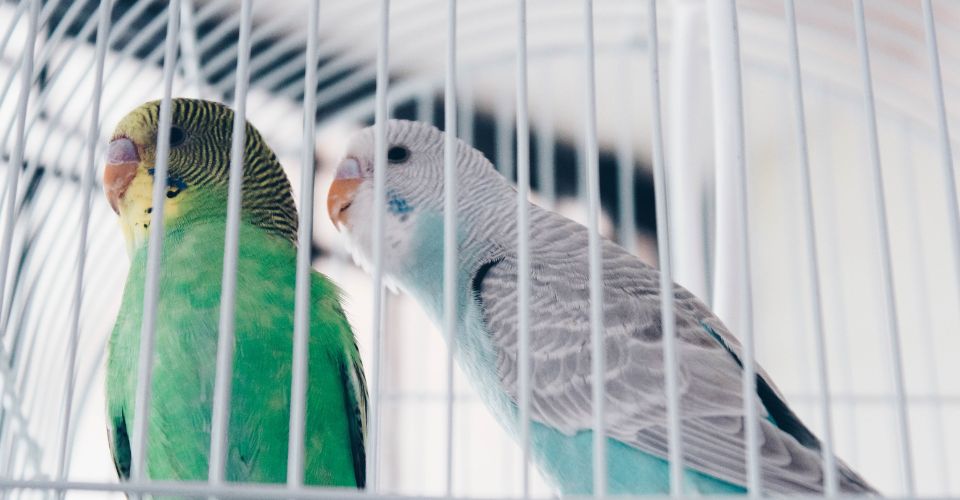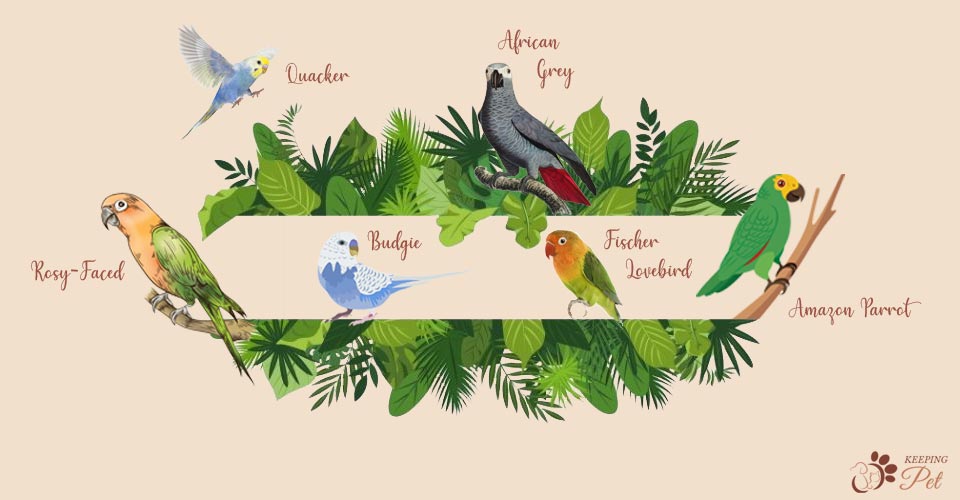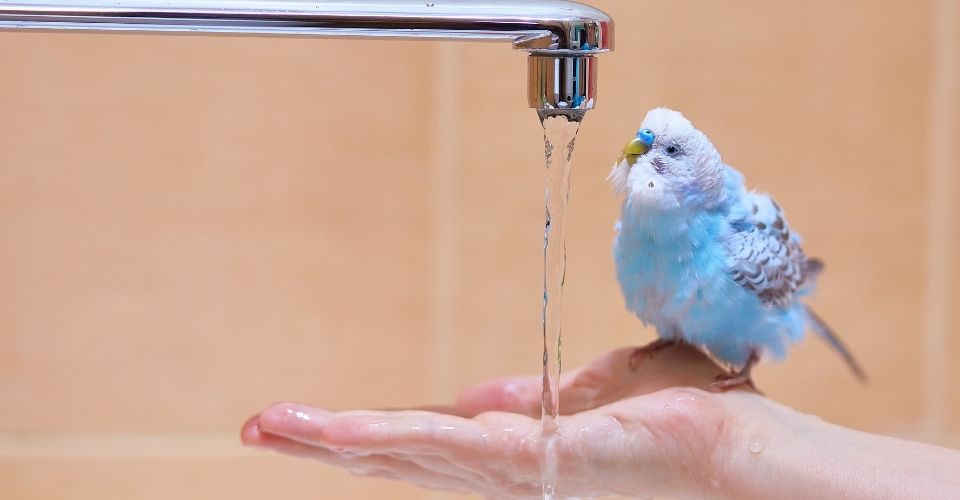The first thing to learn regarding keeping a pet is understanding what to feed and what not to feed your bird.
Parakeets are colorful birds famous for their intelligence and talking abilities. However, they are more fragile than other animals because of their small-sized bodies. For the same reason, we should be careful about their food and diet, especially if we want them to eat something that is not their primary food.
Most fruits are safe for parakeets. But some budgies may have fruit allergies, which can lead to stomach issues.
What about watermelons? Can parakeets eat watermelon? Are they unhealthy for them? Which part of the watermelon is healthy for the parakeet?
You can find answers to all these questions in this blog.
Can Parakeets Eat Watermelon?
Can parakeets have watermelon? Yes, they certainly can eat watermelon.
Watermelon is a popular summer fruit, and everyone enjoys this juicy fruit. Even a parakeet love to take a bite. It is safe and even beneficial for your parakeet if given in moderation along with some other food.
However, watermelon cannot be given as the main course to parakeets, as it contains sugar that can cause obesity and diabetes.
Benefits of Watermelon for Parakeets
Watermelon is not just a delicious treat, it has many nutritional benefits. It belongs to the Cucurbitaceous gourd family. Watermelon is composed 90% of water. So it helps to keep the parakeet hydrated and healthy. However, too much of it can cause serious issues.
Watermelons contain a number of vitamins and minerals, some of them are described and given in the table below.
| Nutrients | Value per 100g |
| Vitamin c | 8.2 g |
| Vitamin e | 0.05 g |
| Vitamin a | 569 IU |
| Folates | 3 mcg |
| Potassium | 112 mg |
| Manganese | 0.037 mg |
| Protein | 0.6 g |
| Fat | 0.15 g |
| Fibers | 0.4 g |
| Energy | 30 kCal |
1. Water
As the name speaks, watermelon is primarily water, around 90-92% to be precise. In the sweltering summers, parakeets may get dehydrated. Feeding them watermelon is one way to keep them active yet hydrated.
2. Vitamin C
Since Vitamin C is essential to building immunity in the body, its deficiency could be detrimental and lethal for the parakeets. Like other animals, parakeets also require strong immunity to stay healthy and fresh. Watermelon contains 8.2g Vitamin C, enough to meet their needs.
It also helps fulfill the iron requirement of the iron-deficient bird, as vitamin C can replace iron during red blood cell formation. Lastly, it also helps parakeets to cope up with stress.
3. Vitamin A
Vitamin A plays a vital role in the growth of parakeets, as its deficiency can lead to the overgrowth of beaks and nails of the parakeets.
Its deficiency also causes flaking and chipping of nails and beak, and if gets prolonged, it can lead to nail and peak breaking.
4. Potassium
Potassium not only helps strengthen the bones of parakeets but also speeds up their metabolism. It reduces the blood pressure of the body and also prevents strokes.
Additionally, potassium also improves the birds’ nervous system and maintains the fluid balance and retains water in the bird’s body (preventing dehydration).
5. Magnesium
A significant amount of magnesium, 0.037mg, is present in watermelon. It helps parakeets in the development of bones, neurons, the brain, and healthy feathers.
It also prevents heart diseases and muscles contraction in birds.
6. Protein
Parakeets get a considerable portion of their energy from proteins. Therefore, they require a sufficient amount of proteins in their daily diet.
Watermelon is a major source of protein, 10 grams of watermelon contain 6 grams of protein.
Parts of Watermelon To Feed Parakeet
Parakeets are small birds, meaning one cube of watermelon is enough for them to stay hydrated and healthy. It can be given along with other fruits or alone—fruit and vegetables make up 20-22% of parakeets’ diet.
That said, bird owners may wish to know which parts of the watermelon are beneficial and healthy for their birds and which parts to keep them away from.
Watermelon has three distinct parts, namely:
- Juicy Fruit Flesh
- Watermelon Seeds
- Watermelon Rind

Can Parakeets Eat Watermelon Seeds
Unlike apple seeds, watermelon seeds are nontoxic. But since watermelon seeds are comparatively bigger, there are chances of choking, especially for baby parakeets.
Therefore, it is advised to remove all the seeds before feeding them to your bird or get a seedless watermelon for your parakeet.
If a parakeet gobbles up any seed by chance, there is nothing to worry about—watermelon seeds are, in fact, a great source of folate, copper, zinc, and potassium.
If you want your parakeet to enjoy seeds, soften the seed coat by soaking them in water overnight.
Can Parakeet Eat Rind of Watermelon
The outer hard (green) skin of the watermelon is known as rind. It has several nutritional benefits for parakeets. It contains citrulline and fibers that help the birds’ digestive system and some amino acids, which reduce their muscles fatigue.
But here is a catch. Watermelons are grown in the fields and sprayed with pesticides. Before giving watermelon rind to parakeets, thoroughly wash it. If not washed, these pesticides can cause serious damages to the bird.
Similarly, avoid chopping the rind into small pieces as birds can chock on it. Instead, cut them into mid-sized chunks to allow the bird to enjoy pulling off the flesh part of the fruit and avoid the hard rind.
Health Hazards of Watermelon for Parakeet
Watermelon contains a high amount of sugar, and too much sugar is unhealthy for all—birds, dogs, cats, and humans.
Considering their small size, parakeets should consume very little amount of sugar. If a parakeet frequently eats watermelon, it may even cause and obesity and diabetes in them.
If you think your parakeet consumes too much watermelon, look for these symptoms of diabetes.
Symptoms of Diabetes
a. Increased Water intake
Look for your bird’s water bowl, if it gets empty sooner than usual, it is a clear sign of pre-diabetes.
b. Weight Loss
If your parakeet loses sudden weight and its feathers start shedding, it indicates that the parakeet might have diabetes.
c. Coma and Seizures
Birds stop moving and, in some cases, may fall off from their positions. Parakeets stop eating their food and start resisting all activities.
d. Infections
Birds get more prone to infections, frequently get ill, and stay quiet all the time. If your bird tends to be aloof, it is time to start getting some health aid for your bird.
Diabetes can kill your bird; therefore, it is required to feed your bird in moderation, whether it is watermelon or any other fruit containing sugar.
Obesity
Obesity in parakeets is also associated with sugar intake. If a bird frequently eats sweet treats or fruits, such as watermelon, it starts getting lazy and avoiding exercises and activities. Which can lead to obesity. If not taken care of properly, it can cause:
Blood Clotting
Prolonged Sickness
Hemorrhage
To sum it up, can parakeets eat watermelon? Yes, they can eat watermelons. It not only contains valuable nutrients, but parakeets also enjoy eating this crunchy, sweet, and easy-to-bite fruit. Before giving it to your parakeet, thoroughly wash your watermelon as it may contain pesticides. Remove all the seeds or get seedless watermelon for the bird, as they can chock on these big seeds. Frequent eating of watermelon can lead to high glucose levels, eventually causing diabetes. Therefore, only one watermelon cube is enough for a parakeet to enjoy the fruit and stay healthy.
Read: Can Parakeets eat Grapes

